Allan McNish column: Nico Rosberg retirement 'brave and understandable'
- Published
- comments
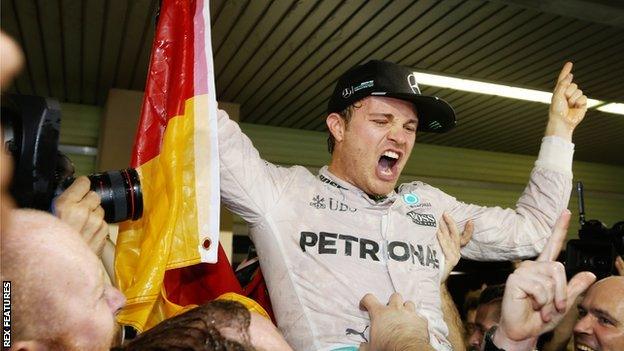
Rosberg bows out a world champion, 25 years after starting his life in motorsport
Nico Rosberg's decision to retire from Formula 1 straight after winning the World Championship was bold, brave - and completely understandable.
It is one of the hardest decisions any sportsman can make, because it is about stopping something you have devoted your life to.
Not just your adult life - university, and then a job - but your entire life, from the age of, in his case, six, when he first drove a go-kart.
Back then, getting to F1 and becoming world champion was just a dream. That became a goal, and the goal is what drives on every sportsperson.
Rosberg is 31. So he has devoted 25 years of his life to get to where he is today.
Until Friday, it had only been about racing, about being better than he was yesterday, about winning, about recovering when he got beaten.
Doing that is fantastic in one way because you are following your dream, and you are able to get up in the morning and smile about what you do as a job.
Some elements are pure, unadulterated fun and enjoyment, and there is no question that anyone who is in sport and able to make a career out of it is very fortunate.
But it is also incredibly tough. The longer it goes on, the more of a job it becomes. And there is a point at which it tips from being fun and enjoyment, to a goal and career, and then a job.
And the moment it becomes a job, when you lose that last bit of enthusiasm, then having to work so intensely hard means your fuel tank is dropping down into the red.
The energy level goes and it becomes hard work, and that's the point where you can no longer continue to be at your best.
Nico Rosberg announces Formula 1 retirement to fans
A sportsman's life is a deprived one
It's worth bearing in mind that most people, in their youth, go out at weekends, and do a bit of this and that. Those years don't happen for sportspeople.
Sport happens at weekends. You can't go out on a Saturday night and then do your best on a Sunday. You're just not on top of your game. And when you get beaten, you're yesterday's man.
So much of your life is dedicated to making it in your chosen arena that, even though he is 31, Rosberg has already done the equivalent of a top business leader's total career.
When I think back to my career, in my last year of racing in the World Endurance Championship in 2013, I spent more than 220 nights in hotel rooms. I was on an aeroplane for a total of 15 complete days - 117 flights in more than 20 countries. An F1 driver's schedule is very similar.
So you are away from home for two thirds of the year. In Rosberg's 10-year F1 career, that is approximately six and a half years of travelling. You have very little social life. Family life is extremely tough. And there is intense physical training every day as well.
Rosberg got married a couple of years ago, and last year had a baby daughter, who has not long turned one.
Having a family looks like it helped him in the past year, in giving him a fluidity to his work. But there comes a point when a sportsman starts to question what he is doing.
It's rarely just one thing. It's usually many things, but they tip the balance between feeling like you want to get up in the morning and do that early run, or get on the plane to go to a test or drive in the simulator, or whatever - or not.
Where I relate to Rosberg's decision directly is that winning the World Championship was my last goal, and in 2013 I put everything I had into it.
The previous year, my team-mate Tom Kristensen and I got beaten and we were so annoyed about it, so massively disappointed, that we threw everything at it for 2013.
It worked, but you can only put that level of energy in every so often. And I did not have the energy to go again. Rosberg has said the same thing about his decision.
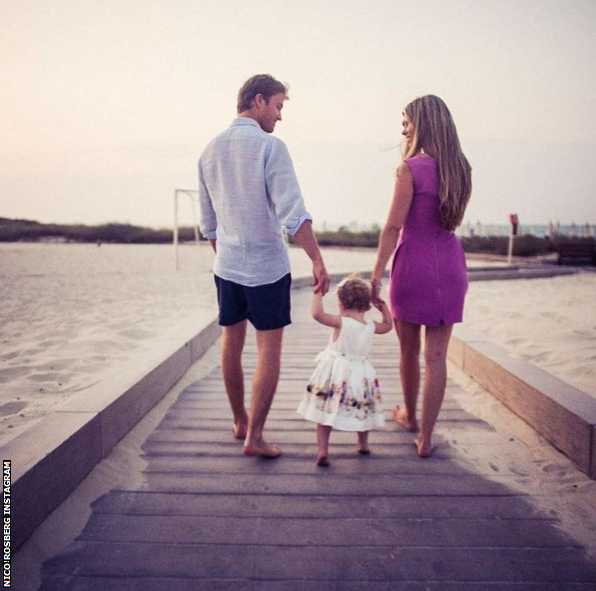
Family time: Rosberg has a one-year-old daughter Alaia with wife Vivian
The title was the crucial last piece
Rosberg is a sensible and realistic character, and I'm sure he realises this year was his best chance of winning the title.
Not only is he unlikely to get another season when the reliability within the team goes his way as much as it did, but there is also no guarantee Mercedes will continue to dominate in the way they have in the past three years.
That seems to contradict the fact Rosberg has said that, had he not won the title this year, he would have continued. But that makes total sense.
Winning the F1 title was what has driven him on, and now he has done it.
Rosberg is in a very different position to most sportspeople. In fact, I can only think of one other who can relate to him, and that's Damon Hill.
Just like Hill, Rosberg grew up with a father who was an F1 world champion, someone who was revered in motorsport.
I know Keke Rosberg well, because he was managing Mika Hakkinen when he and I were racing against each other on the way up the ladder. And I know how hard and focused he was and is. That would naturally reflect on Nico.
So when Nico achieved what his dad achieved, that is the final tick in the box. And that's why he said if he had not, he would have gone again. Somehow, he would have dragged up the energy.
But now he has won it, he will have sat there and thought, "Do I have the energy?" And the answer was: "No."
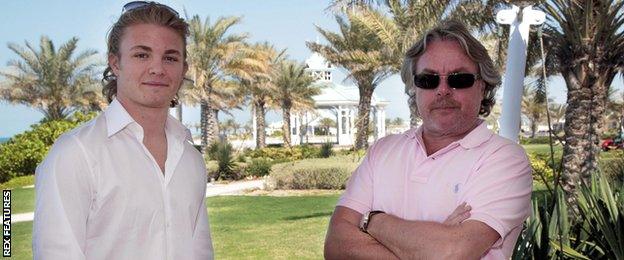
Now Nico has emulated his father Keke's success in F1, was there anything left for him to prove?
Why do others keep going after becoming champion?
That makes him very different from other drivers, such as Lewis Hamilton and Fernando Alonso, for example, who just want more.
Every racing driver is a person, too. And every person is different.
Rosberg is highly intelligent and very strategic - in the way he drives, in the way he works with the car and team. For him, it is not effortless in the same way it is for, say, Hamilton or Alonso.
This was a very considered decision by Rosberg, which takes into account all his personal situations, whether it be family, friends, opportunities, energy levels or what's attainable.
He has gone out as a world champion. That is a special thing. His last time sitting in an F1 car was his slowing-down lap after clinching the title.
It was the same for me in sportscars. One of the best memories I have is that slowing-down lap in my last race, tapping the car, three minutes to get back to the pits. It's beautiful.
Alonso is a different character. I think he will just want to drive anything - if not F1, then another category. He has already said he wants to have a go at Le Mans after he is finished in F1, for example.
Hamilton is different again. I don't think he will be around forever. I think he will go for records and then go off and do something else and be completely out of motorsport. I suspect Rosberg will do something in motorsport, somewhere, somehow.
The last thing to say about Rosberg is his decision is very brave and reveals him to be very self-assured.
He still had two years on his contract. He could have won more races - and earned a huge amount of cash as a world champion. He is, after all, the first German ever to win the F1 championship in a Mercedes.
And he is walking away from that.
A few people will be saying: "He's nuts." But that takes balls and I tip my hat to him for that.
What's next? I suspect he will stay on with Mercedes as some form of ambassador.
Nico Rosberg on his 'emotional rollercoaster' in 2016
What do Mercedes do now?
Rosberg's retirement leaves a vacancy in the best team on the grid, and team boss Toto Wolff has to find the right person to fill it.
His problem is all the best options are under contract to other teams.
The romantic notion - the one many fans would want to see - would be to stick Alonso in and watch him and Hamilton go toe to toe again.
But even if Wolff wants that and the aggravation it would bring - and I very much doubt he does - he can't have it. Alonso will, I'm sure, be desperate to get that car, but he is locked into McLaren belt and braces and they are not letting him go.
Jenson Button's name jumps out because he is not driving any longer, but I don't see that as a practical option on any level as much as it would be nice to see.
Mercedes have two talented young drivers in F1 - Pascal Wehrlein and Esteban Ocon - being groomed for something in the future. But it is rather early to throw them into that situation.
You can point to Max Verstappen and say Red Bull put him into their lead team after one season and four races and argue that if you are good enough you are old enough.
But an education at Toro Rosso is a little different from an education at Manor.
Mercedes maybe should look at Paul di Resta. He is under contract in DTM, has been the reserve driver at Williams this season and did four seasons of F1 with Force India.
I could see Sergio Perez and his Mexican sponsors trying to buy his way out of his Force India contract - and he is the one I would go for. But in the end the most appealing option for Wolff might be Williams driver Valtteri Bottas.
Wolff has managed Bottas for some years now, and the Finn only has one year left on his Williams contract.
Williams use Mercedes engines and Wolff could cut them a deal to give them a price reduction - and could even offer Wehrlein as a replacement.
The other alternative is to put Wehrlein in for a transition year and wait for other drivers who are maybe more on Hamilton's level to become available at the end of next year - when both Alonso and Sebastian Vettel are free, and Daniel Ricciardo's Red Bull contract has only a year to run. Perez is also out of contract then.
But that is very risky for Wehrlein. Going up against Hamilton is not the easiest thing and if he was overwhelmed - which he may well be - it would be a huge confidence knock and possibly end his F1 career.
Allan McNish was talking to BBC Sport's Andrew Benson
- Published4 December 2016
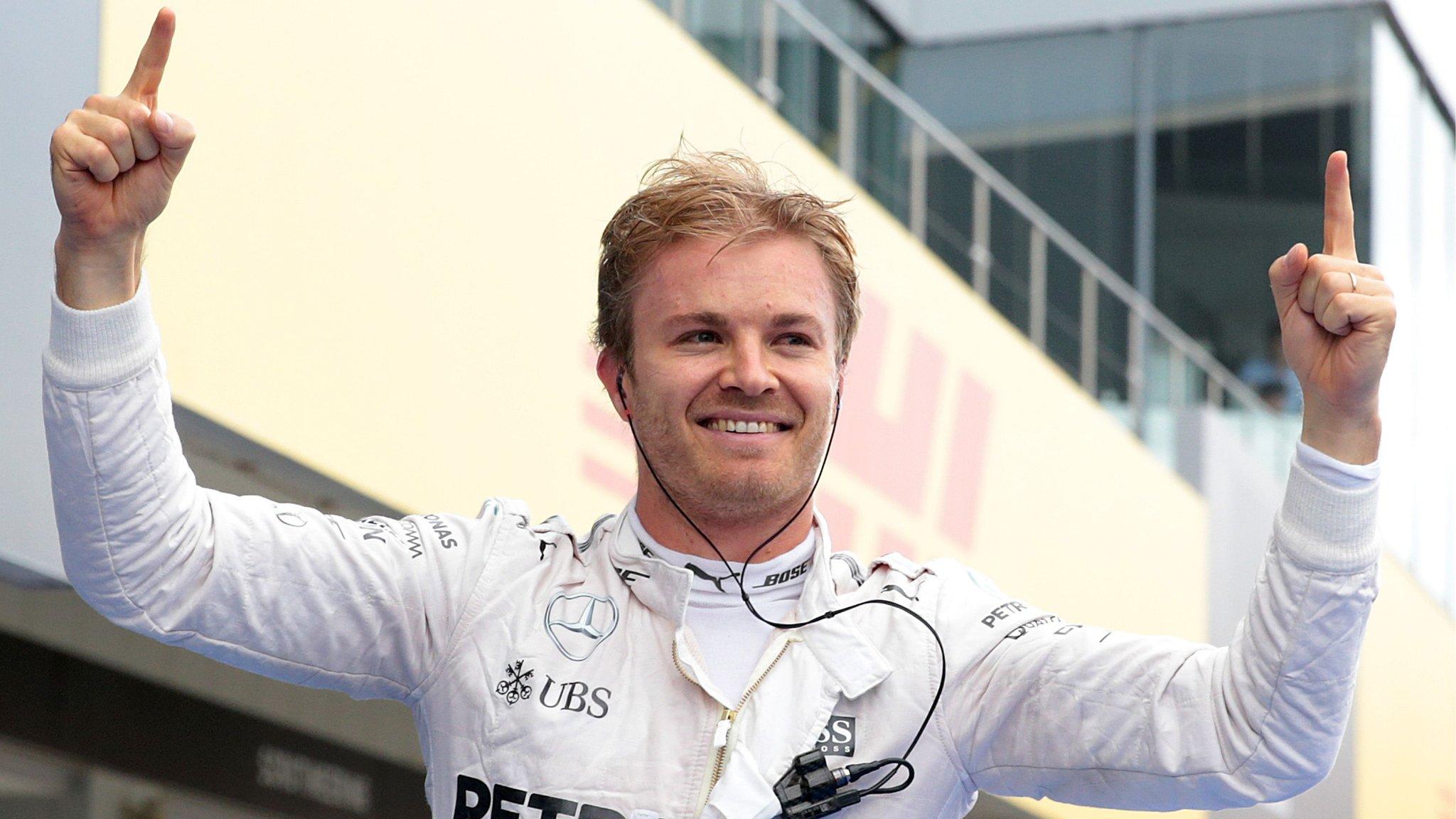
- Published2 December 2016
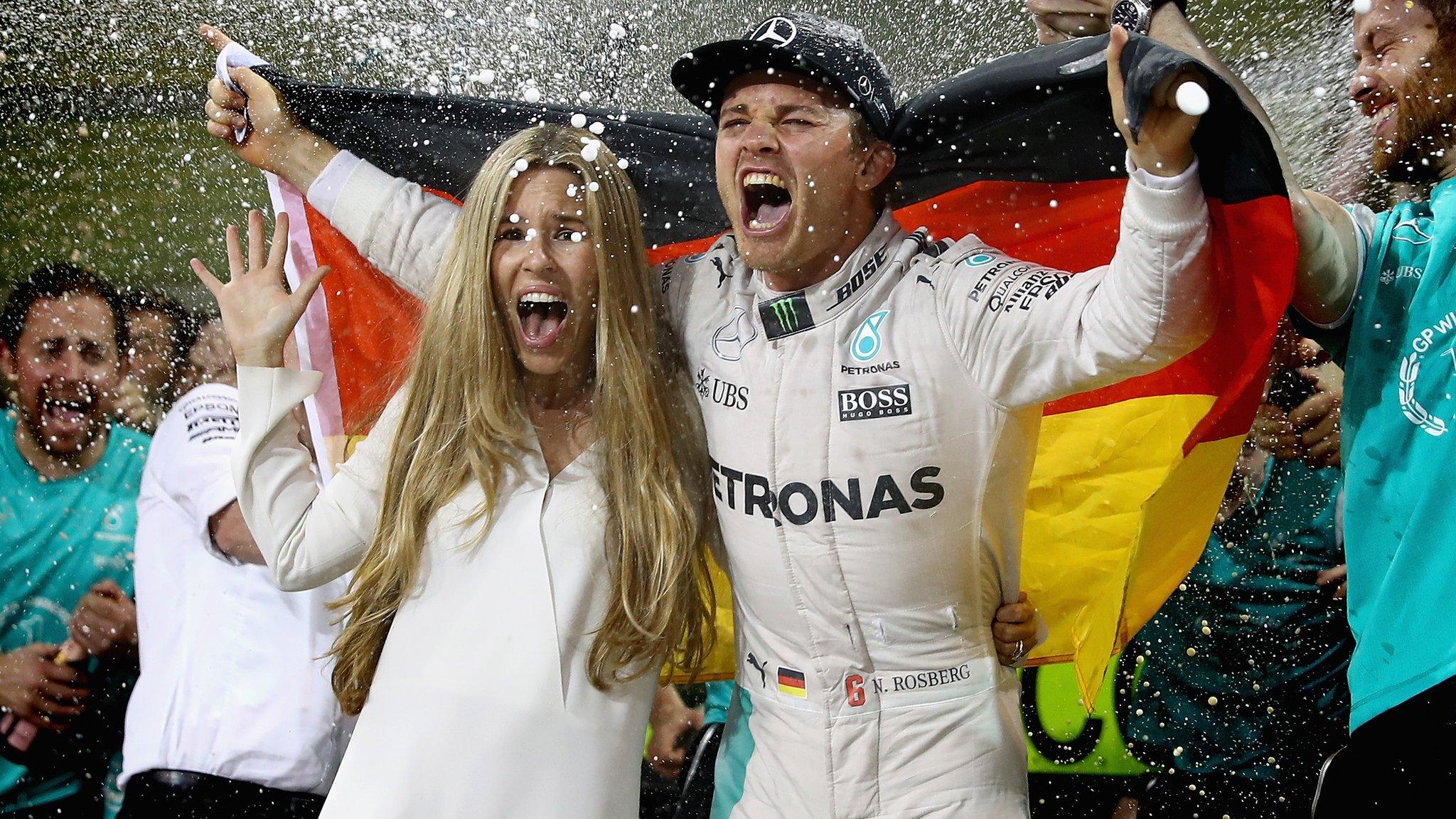
- Published2 December 2016
- Published2 December 2016